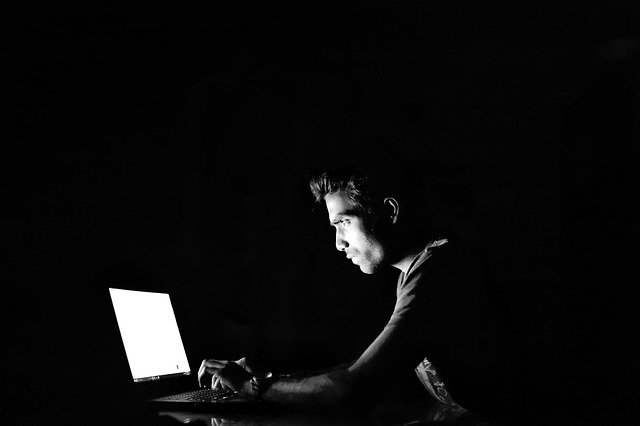Privacy is the new black in more than one sense; it never goes out of style and fits every occasion. So, when have you become worried about privacy issues?
Privacy is the new black in more than one sense; it never goes out of style and fits every occasion. So, when have you become worried about privacy issues? Was it when you chatted loudly with a friend in public, trying to overpower the traffic noise? Or when you had to listen to your neighbor’s birthday playlist long into the night? Perhaps when your mother shared your (uncensored) childhood photos with the rest of the family?
Do we take our privacy for granted?
The truth is, we most likely haven’t thought of any of those situations as a serious privacy breach. I don’t believe I would think about them twice; they are so easily ignored. Those people in the street might have overheard the conversation, but they don’t know me anyway. My neighbor’s taste in music is actually quite good, and my family is looking at my diaper-free behind from a long time ago. No big deal, right?
It seems that we have simply transferred our privacy-unconcerned ways from an offline to a social media world. The problem is, someone discovered how to gather data generated online and set out to monetize them. And we are the leading stock providers. After all, the GDPR in Europe hasn’t dropped from the clear sky. Perhaps, changing social media is only a part of the solution. The other is changing our own deeply ingrained habits.
Change begins with recognizing our flaws
It is us who claim we don’t trust social media platforms but overshare our personal information. No one else but us use the platforms that were proven to broker our data, and yet, the majority of us still don’t customize privacy settings. Reconciling these paradoxes involves understanding one vital matter. Your privacy is at risk whenever you provide and receive information. While certain laws and regulations protect you, whether or not you will be and feel safe online is mostly up to you.
I know that I first felt a stab of concern when I learned about something called informed consent. In simple terms, it involves understanding what is being done to you, your ability and scope of cooperation, and any risks involved in the process. When we look at it through the prism of social media as our personal window to the online world, it seems that everything is crystal clear. But is it? Do we really know what we agree upon? Or we simply do not care?
In defense of regular social media users, most of the Agreements concerning user content on these platforms are difficult to understand. Has anyone ever succeeded in patiently scrolling down and reading the long passages of privacy policy terms and conditions? I wish to believe that if they had, they would explain in simple words what we grant the platforms by signing in and sharing. Should anyone ever manage that, they would do a typical social media user a huge favor. They would finally explain the rules of the game to all of us who have to lose the most. Whether we’re aware of the fact or not.
Do we have to sacrifice a part of our privacy to connect with others?
Yes, we do. Sharing of privacy is at the root of any meaningful bond. But as long as we choose what we share, with whom we share, and are fully aware of the consequences, the risks become tolerable. Just like in every real-life relationship, choosing carefully is the basis of a good decision. That way, you don’t have to pick between social media and loneliness but between valuable and meaningless connections.
In essence, you are balancing your personal privacy and the benefits you get in return for sharing it. In case you switched jobs and care to fit in, you don’t have to share personal information with new colleagues if you don’t feel comfortable. Building a true sense of belonging takes time. If you’re by chance moving to a new place, you can still meet your neighbors and get to know people around you while keeping your privacy intact. The trick is, as always, setting your boundaries and respecting those of others. After all, there is a big difference between being alone and being left alone.
An overbearing oversharing
If ethical codes and privacy ever become old-fashioned, we’re going to nosedive as a society. Or has it already happened? The irony is troubling; privacy is the new black in a world thriving on trends and short-living popularity. Giving a proper tribute to privacy these days implies growing up, taking responsibility, and correlating our actions with our values.
Hence, if using your data against you genuinely concerns you, then stop providing brokers with free merchandise. There are ways to fight the urge to overshare online. Just remember that there are things you enjoyed before social media, away from the world of analytics and transactions. That is a proven path you can take to create a more fulfilled life. The kind of experience you share with others in person.
Can we ever avoid privacy risks?
One thing is certain; online privacy concerns raise numerous questions. Some of which we might not be able to answer as easily as we think. For example, who owns the data shared on social media? If you share information about other people online, do you need their consent? Are erased data ever truly deleted from the internet, or they remained stored? Can we hope to eradicate privacy issues, or the best we can strive for is to minimize them?
When sharing of information is involved, risks are always present. Whether your friend will gossip behind your back or market researchers will sell your data to the highest bidder is irrelevant. The betrayal is real. The recent controversies back up the fact that privacy is the new black, but it is much more than that. Privacy was, is, and always will be our most important piece of apparel. One that we should choose how, where, when, and whether to wear, being ready to accept the consequences of the latter.




1 thought on “Privacy is the new black”